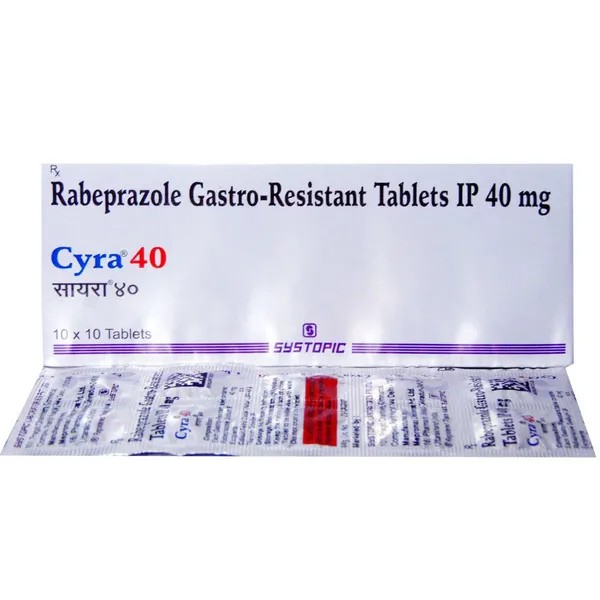Use:
Cyra Tablet is an acid-reducing medication used to treat acid-related diseases in the stomach and intestine. It helps to reduce the amount of acid in the stomach, relieves symptoms, and promotes healing. Some of the diseases that Cyra Tablet is used to treat include: Zollinger-Ellison syndrome, peptic ulcer disease, and acid reflux.
Indication:
The recommended time to take Cyra Tablet is one hour before meals, but it can be taken in the morning as well. The dose of the medicine will vary depending on your condition and how well you respond to it. Your doctor will suggest that you take it at a consistent time each day. Even if your symptoms go away quickly, you should continue to take it as prescribed. Eating smaller meals more frequently and avoiding sugary drinks such as tea and coffee as well as spicy and fatty foods may help to improve your symptoms.
Side Effects:
The most common side effects with this medicine are nausea, vomiting, and headache. Other side effects may include dizziness, stomach pain, flatulence, and diarrhoea. These side effects are usually mild but should be discussed with your doctor if they persist or if they do not resolve. The risk of developing side effects increases the longer you take the medicine. Taking this medicine for more than 1 year may increase your risk of bone fractures, especially if you take higher doses. To prevent bone loss, talk to your doctor about options such as calcium and vitamin D supplementation.
Some people taking this medicine have low blood magnesium levels. This is known as hypomagnesemia and has been observed in some people taking it for 3 months or longer. Low magnesium levels can cause tiredness, confusion and dizziness. Muscle twitches and an irregular heartbeat may also occur. To prevent this, your doctor may monitor your blood magnesium levels.
Safety Advice:
Some people may not be able to take Cyra Tablet. If you have liver problems, you should consult your doctor before taking this medicine. You should also not take this medicine if you are HIV positive, have a history of allergic reactions to similar medicines, or if you suffer from osteoporosis. Women who are pregnant or breastfeeding should not take this medicine.
Do not drink alcohol as it causes your stomach to produce too much acid, which can make your symptoms worse.
Do not drive and do not use machines or tools as this medicine can cause dizziness or sleepiness.










